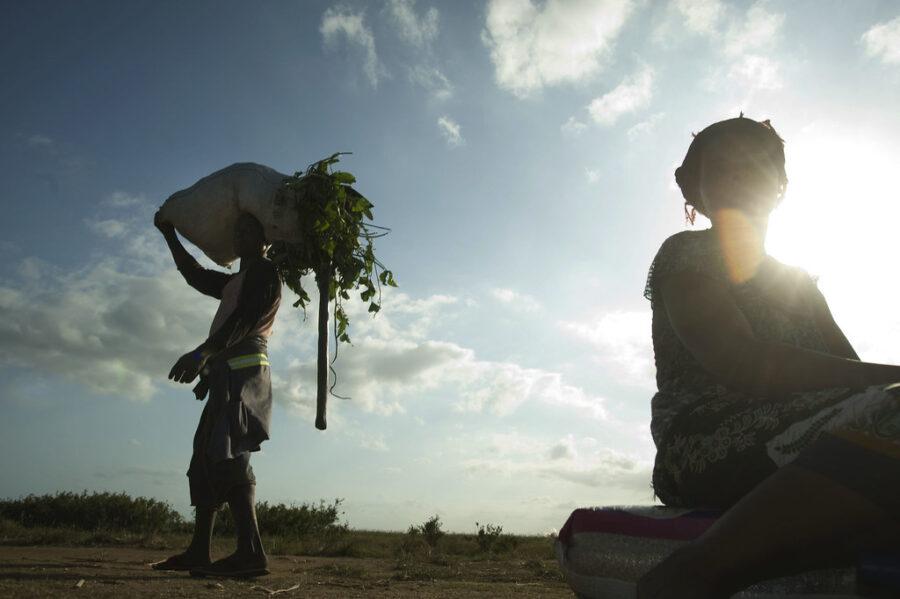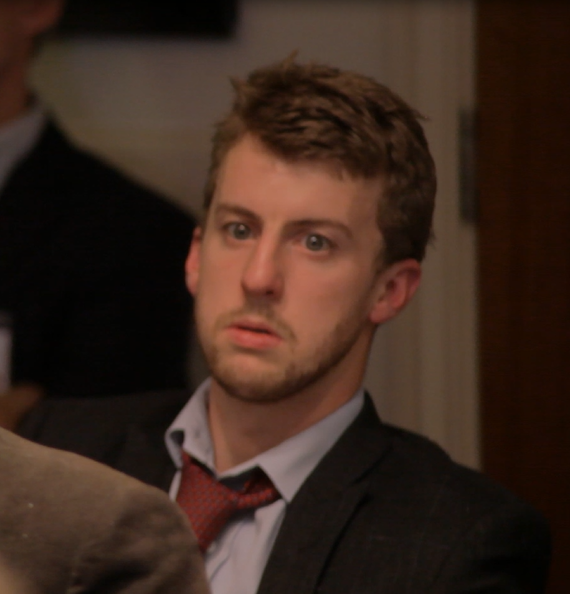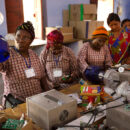To make climate issues resonate in Africa, we have to make them local

Instead of always focusing on global calls to action, climate change should be linked to specific national concerns.

Francisco Diaz carries greens from his farming plot back to his household in Mozambique. Credit: Jeffrey Barbee/Thomson Reuters Foundation.
As COP26 approaches, there is growing interest in how Africa’s leaders will approach the November conference. With time fast running out to limit the effects of the climate change, there is much at stake for the continent. To many in the development world, however, its prospects can be summarised in the BBC article that asked “Is Africa sleep walking into a potential catastrophe?”
In international climate discussions, Africa tends to be framed at one of two ends of the narrative spectrum. In the “Africa as a victim” framing, we are constantly reminded that Africa will be the hardest hit continent, with the impacts of climate change exacerbated by high levels of poverty and our predilection for cutting down trees and extracting coal and oil. These stories pull on the heartstrings with the images of victims. They show fishermen with no fish, farmers with no crops, and neither with solutions.
At the other end of the spectrum, the “Africa as a protagonist” framing centres on big money deals and high-level meetings attended by grey-suited politicians and businessmen. The focus is on renewable energy projects, the carbon tax and climate funds. Africa is painted as an active agent in this framing, though stories are still largely told through the lens of rich countries trying to help poor countries and poor countries getting more belligerent in their demands.
The challenge with both frames is that neither represents how the majority of Africans are impacted by, and think about, climate issues. Neither resonates with most people on the continent. In a 2019 Afrobarometer survey of over 45,000 people in 34 African countries, 4 in 10 respondents said they were “not familiar” with the concept of climate change. According to Google Trends, relatively few people on the continent are actively searching for information about the issue. This August, the most searched term in 13 countries was “jobs”.
The challenge for activists is to figure out how to make climate change resonate more deeply in Africa so it gets the attention and action it needs. One way is to find that middle ground between the extremes of “Africa as a victim” and “Africa as a protagonist” by tying climate conversations to the specific needs of each country rather than always focusing on global and, let’s be honest, somewhat generalised calls to action.
Gabon provides an amazing example of how the specific needs of a country have driven their climate action. Their environment minister – the British-born and appropriately named Lee White – is an environmentalist with 30 years of experience in the region. He was appointed with the specific mission of saving Gabon’s forests, which cover nearly 90% of the country and account for 17,000 jobs. With political will, focus and expertise, White led Gabon to recently become the first African country to receive an initial tranche of a $150 million from a climate fund to protect its forests. This most unlikely of African minsters is the embodiment of how Africa’s leaders should be approaching COP26.
There are many other promising instances of climate action being linked to specific national challenges too. In a review of 575 media articles published between January 2020 and August 2021 that had the words “climate” and “Africa” in the headline, we saw a trend in several countries. In Nigeria, for instance, questions around the climate were appearing in stories about the herder-farmer conflicts. What started as an issue of insecurity evolved into one of climate change, helping Nigerians engage on climate issues in a context that is meaningful to them. In Kenya, we noticed a similar pattern with climate becoming part of conversations around farming and food security. And in Madagascar, our analysis of climate hashtags on twitter suggested that the worst drought in 40 years was also fuelling conversations about the climate. It showed us that local context matters and is a clear path to climate conversations.
What we need is more of what is working – much more. We need more local activists like Uganda’s Vanessa Nakate and Kenya’s Phylliss Omido in local forums highlighting their country’s specific climate issues. We need more local civil society organisations, researchers, think tanks and media outlets digging out the local data and challenging governments. And we need more of the millions of philanthropic and development dollars to be invested in developing, building and supporting local organisations.
If the world believes that climate change is the greatest threat to humanity, we have got to make it local.





